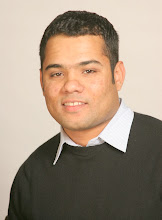
I am headed to the Naval Postgraduate School in Monterey, California to attend the 6th Edge Project Research Workshop. I am looking forward to exchanging ideas during this meeting. I will be presenting two papers. The first one is funded sponsored in part by the Office of the Assistant Secretary of Defense for Networks and Information Integration (OASD-NII) through its Command & Control Research Program and the Center for Edge Power at the Naval Postgraduate School. While the second one received partial support from the Centers for Academic Excellence Program at the Office o the Director of National Intelligence via the Institute for National Security Education and Research at the University of Washington.
Performance Measures for Edge Organizations: A Preliminary Report (Authors: Kevin C. Desouza, Sumit Roy, Yuan Lin)
AbstractTaking an information-processing view of organizations, we address the need for building a robust set of performance measures for Edge Organizations (EOs). Alberts and Hayes in Power to the Edge: Command, Control in the Information Age conceptualized EOs as information-intensive entities whose performance is directly related to their ability for agile information processing. We ask the question, how can we measure the information-processing capacities of EOs? To this end, in this research-in-progress paper, we examine (1) the technical dimension of information flows, (2) the human-dimension of information flows, and (3) the socio-technical dimensions of information flows. The technical dimension represents movement of information between two machine nodes and can be informed by drawing on performance measures for telecommunications network theory. The social dimension represents the movement of information between two human nodes for which we examine the literature on social networks for performance measures. Finally, the socio-technical dimension represents movement of information between human and technical nodes or vice versa. To develop measures for these information flows we must not only extend, and customize, the performance measures from telecommunications networks and social networks, but also draw on measures in the disciplines of decision sciences, information sciences, and organizational science, among others.
Coordination Strategies for Edge Organizations (Authors: Joaquín Herranz, Jr., Kevin C. Desouza, Sumit Roy)
AbstractThis paper provides a critical analysis of coordination strategies related to Alberts and Hayes’ (2003) conceptualization of Edge Organizations (EOs). According to Alberts and Hayes (2003), EOs offer a high-contrast alternative form of coordination when compared to hierarchical structures for command and control (C2). In this view, EOs resemble networks in their form and in their decentralized, adaptive, and dynamic functioning. This paper examines and extends current theoretical understanding of coordination strategies for EOs by providing a three-part analytical critique. The first part examines the EO concept from the critical perspective of organization theory. The second part questions the notion of EOs as an archetypical network form that is best able to combat terrorist organizations. We argue that terrorist organizations represent a range of organizational forms rather than a single network form. Consequently, EOs should likewise represent an adaptive range of organizational forms and coordination strategies. The third part provides a conceptual framework that builds upon the previous critiques and identifies a range of coordinating strategies for EOs that would enable leaders to use an analytical model in determining the strategic and operational trade-offs associated with different coordination strategies in multi-actor complex endeavors. We argue that the effectiveness and efficiency of the EO is related to its coordinating strategy. Consequently, the EO needs to be agile enough to choose the right coordinating strategy given the conditions of its internal and external environments. The internal environment includes the work and task allotments, while external environment considers the issues of coalition partners, goals, strategies, etc. Our paper contributes to building a more robust EO framework by providing a critical analysis of coordination strategies related to Alberts and Hayes’ (2003) re-conceptualization of military organizations as EOs
























